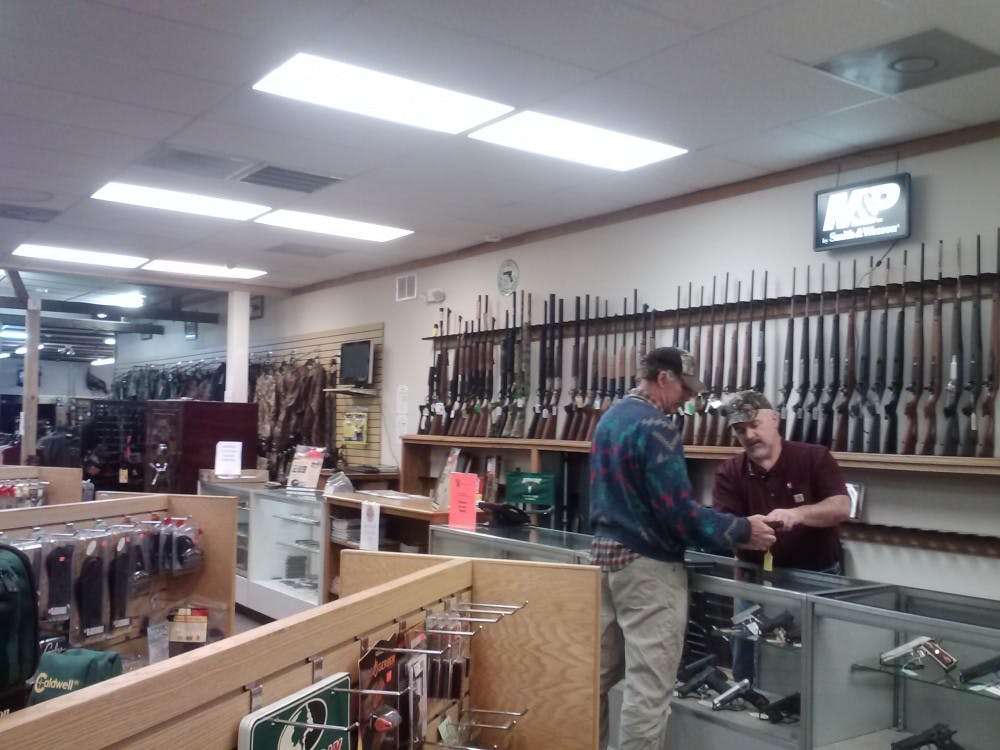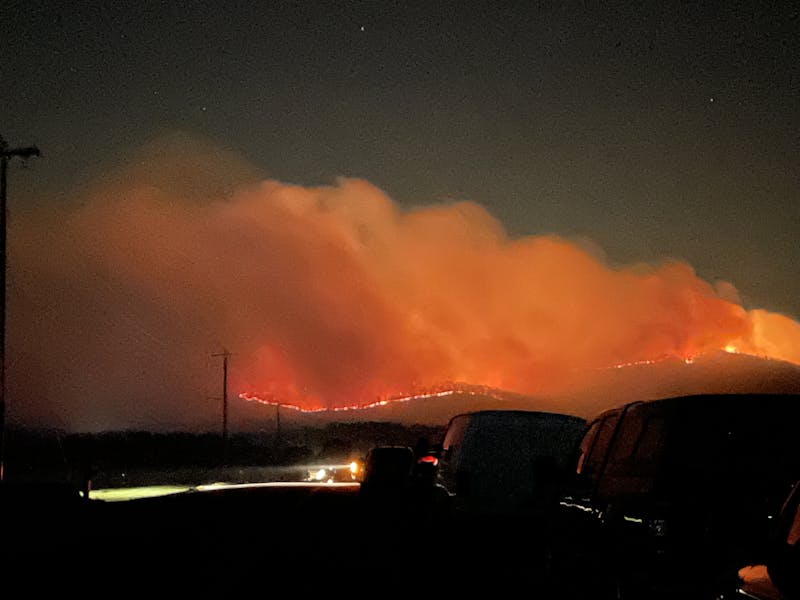In the midst of a bitter debate between advocates for gun control and proponents for gun rights, one cannot forget about the outlook of a key player in the conflict — the gun retailer.
Located in Fort Loudon, Pa., Keystone Country Store sells about 1,000 long guns and 500 handguns each year — semi-automatics not included in those statistics.
While this may seem like a large amount of firearms, it is not comparable to the amount of hunters and sportsmen in the area, according to the store’s gun manager, Gary Seburn.
However, the shop’s business has been booming in the recent months, even though gun control is being promoted more than ever before.
Among the guns flying off the shelves are semi-automatics, despite rising in price from $899 to $1499 in the past six months.
Keystone Country Store is a successful business, but it has also proven to be an honest business.
Sales forms from the beginning of the shop’s history are kept on hand for the The Bureau of Alcohol, Tobacco Firearms and Explosives (ATF) to check when they visit the store.
The ATF is required to visit every three years, but representatives from the bureau can stop in to investigate at any time.
While an ATF representative is at the shop, they check to make sure the gun count matches the recorded number of sales.
They also evaluate the forms the shop has to complete for every person who purchases a gun.
Ten of these forms are chosen at random and checked for accuracy in completion.
These evaluated forms are very crucial to the gun-buying process.
Every time a person goes to buy a gun, he or she must fill out a form that is provided by the ATF to the store.
Each firearm requires a different kind of form, and therefore, a different or more thorough background check.
Depending on the results of that background check, the purchase of a gun will either be approved or delayed.
“Anything from a DUI or more than two unemployment checks can delay the process, but that information is private. We are only told to delay the sale, ” Seburn said.
Currently, there is no limit on how many long-guns a person can buy, but these guns are typically only used for hunting and range shooting.
On the other hand, handguns are limited to the purchase of two in a 10-day period.
Seburn said the influx of gun-buyers at Keystone Country Store has consisted of many older people.
“We have had many older people coming into the store to buy guns, but most of these people have never owned guns and don’t know how to handle them,” Seburn said.
However, the store is holding regular gun safety workshops to make sure its customers are using their guns properly. In regard to semi-automatics, which cannot be used for hunting in Pennsylvania, Seburn noticed most of the people who buy these guns are former military soldiers who want to protect their homes.
After learning the process involved in purchasing a gun, it is important to question whether more gun restrictions would really hinder gun violence. In Seburn’s opinion, they would not.
“I’m not opposed to higher gun restrictions. It wouldn’t hurt our business, and it wouldn’t hurt any good business. But, I don’t think gun violence would stop because of higher gun restrictions.”
That is the ultimate question. Do criminals buy guns legally? Would higher restrictions on gun retailers limit gun violence? The answer may come in the near future.





The Slate welcomes thoughtful discussion on all of our stories, but please keep comments civil and on-topic. Read our full guidelines here.